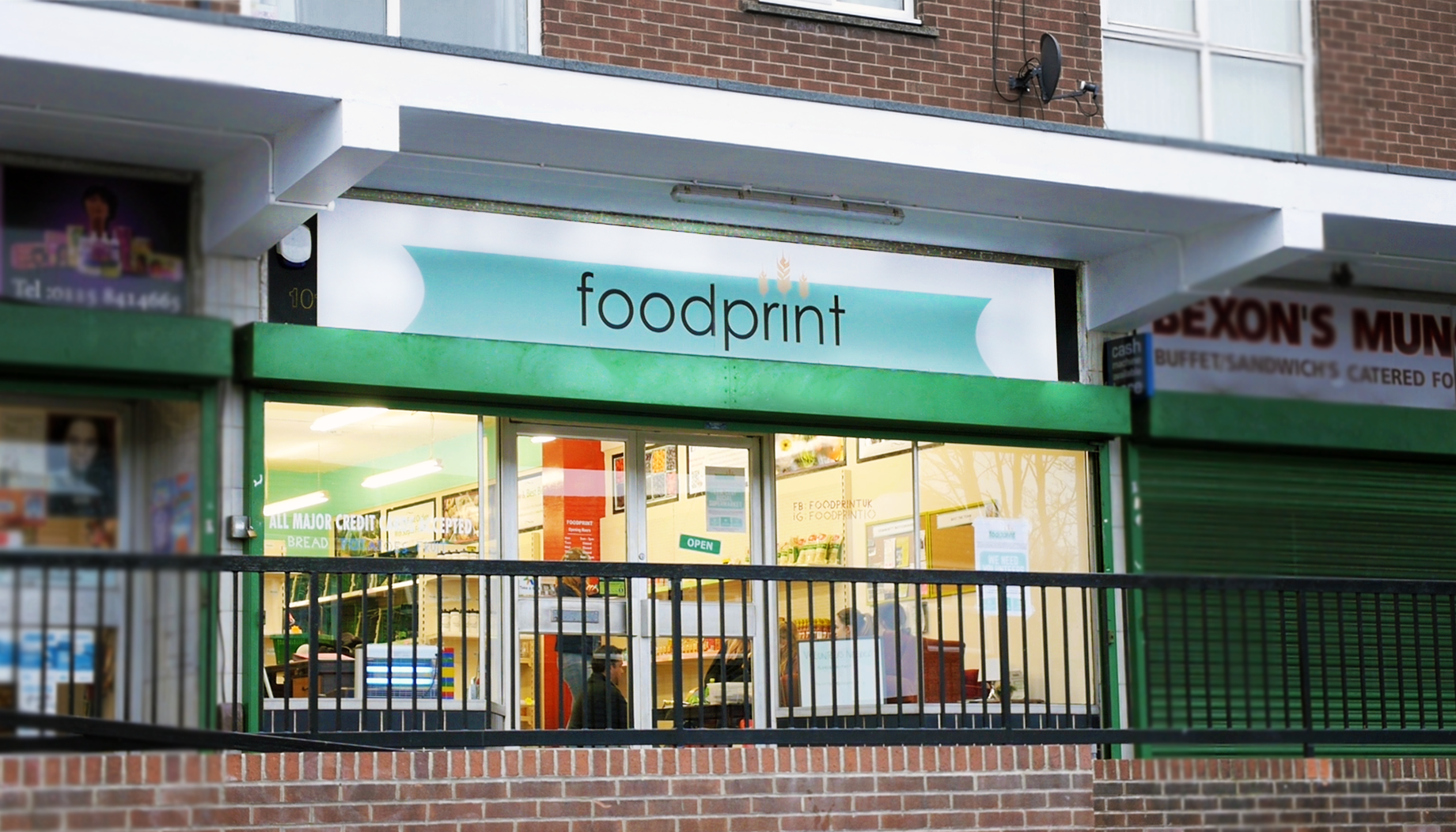
September 24, 2020, by Andrew Edwards (Ed)
Foodprint: how to embed a social enterprise in the community – by Isabel Corlett
Foodprint is proud to have set up Nottingham’s first social supermarket, led entirely by University of Nottingham students. Foodprint also serves as a food redistribution network.
Foodprint has rightly garnered favourable media coverage for its innovative and impactful work both before and during the Covid 19 crisis of 2020. However, it would not have been able to carry out this work if it had not already succeeded in embedding itself in its local community. This blogpost therefore chooses to focus upon how Foodprint has gone about the tricky business of community engagement.
The Foodprint store
If you take a short walk into one of Nottingham’s oldest and most distinctive neighbourhoods, Sneinton, you will soon find the Foodprint store. For all its history and character, Sneinton sadly finds itself amongst the most deprived areas in the country, with approximately 42% of its children living in poverty.
Social supermarkets can fill the gap for those who cannot afford good-quality supermarket food but want the choice and dignity that food banks cannot provide. Foodprint sells food 70% cheaper than supermarkets, to be accessible to as much of the community as possible. Fruit, vegetables and other nutritious foods are further subsidised to aid healthier diets. Foodprint is able to do this thanks to the generosity of local suppliers, including locals who provide produce direct from their vegetable allotments, and through being a Fareshare Midlands Community Food Member. Fruit and vegetables are also provided by other supermarket partners.
The store itself is staffed by students and volunteers from the local area. It serves an average of 110 customers a week, who come from in and around Sneinton. By recruiting and training volunteer store managers from the local community, Foodprint helps community members build strong, long-lasting personal relationships, often uniting people from very different social backgrounds.

Surplus food redistribution network
Foodprint’s surplus food redistribution network now impacts a further 600 people, giving food to homeless shelters, food banks and school breakfast clubs. This sort of community penetration is not instant and has required a great deal of hard work since 2017. The store itself, under normal circumstances, is a community hub where customers can make use of a sofa area to socialise. However, Foodprint has further embedded itself in the Sneinton and Nottingham community by establishing many local partnerships and networks.
It has created partnerships with several local schools by providing breakfast club meals. These schools in turn have brought their pupils for trips around the store. These partnerships were consolidated throughout the coronavirus–induced school closures, when Foodprint continued to provide breakfast packages for school children from disadvantaged families, who might otherwise have gone hungry.
Foodprint makes a difference to the environment and the community by simultaneously reducing food waste and helping to alleviate local food poverty. A good diet is vital to a child’s development, allowing them to achieve better academic results and secure better employment. According to a government paper in 2018, 43% of children who were entitled to free school meals did not reach a good level of development at age five, compared to 26% of their more advantaged peers, who had access to a more nutritious diet. Foodprint is hopeful that its food redistribution activities are making a contribution towards education and social mobility in Nottingham.
The future of Foodprint
Foodprint is excited about the launch of its new project ‘Foodprint on wheels’ in September 2020. A van has been ingeniously converted into a mobile social supermarket in order to sell reasonably-priced food more widely across Nottingham. ‘Foodprint on Wheels’ will be used to target other areas of Nottingham with vulnerable populations who are suffering from poverty and have limited access to good food. This resource will be invaluable during any future crises.
Foodprint continues to strive to make a difference across Nottingham and reach out to communities that deserve better, healthier lifestyles. By expanding its redistribution to community spaces and market events, Foodprint hopes to increase its current reach of 700 people per week, in a way that promotes sustainability.
Given the economic and social contribution that Foodprint has made since it opened in 2017, it is unsurprising that it has succeeded in establishing itself in the community. Nottingham is lucky to have such a dynamic social enterprise in its midst!
Links to Foodprint news articles in 2020
https://www.nottingham.ac.uk/news/foodprint-covid-challenge
https://www.nottinghampost.com/news/local-news/nottingham-surplus-supermarket-stepping-up-4089880
No comments yet, fill out a comment to be the first

Leave a Reply